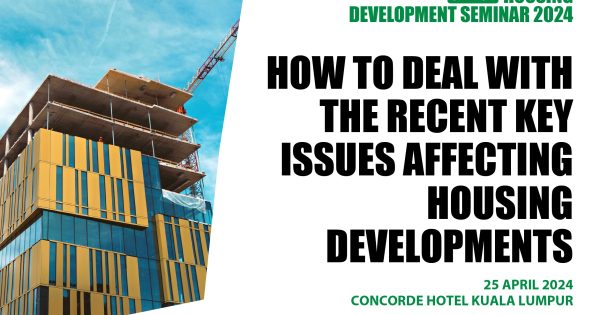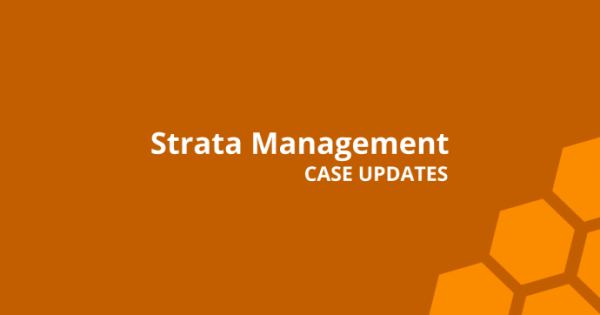Duties Of The Developer
This week, I’ll share with you the statutory duties of the developer, what happens if the developer fails to perform them and what action can the JMB/MC can take if that happens. We’ll also cover what the JMB should take note of when the JMB is formed. This topic is important because it determines whether a JMB will have a good head start.
It is the duty of the developer to open, maintain, transfer the building maintenance account and convene the first general meeting.
It is interesting that the Strata Management Act (SMA) appears to provide clarity over:
- Developers Management Period – which means the period commencing from the date of delivery of vacant possession of a parcel to a purchaser by a developer until 1 month after the establishment of the JMC; (Section 7(2))
- Establishment of a JMB – upon convening the first Annual General Meeting (not later than 12 months after delivery of vacant possession)
- Preliminary Management Period – means the period commencing from the date of delivery of vacant possession of a parcel to a purchaser by the developer until one month after the first annual general meeting of the MC
- Establishment of a MC – Upon the opening of a book of the strata register
A JMB is first formed after the first meeting is called by the developer whereas the MC is first formed upon the opening of a book of the strata register.
The developer has a period of 12 months from the date of delivery of vacant possession of the parcels (a piece of real estate usually resulting from the division of land) to call a first meeting to establish a JMB. Whereas for a MC, the developer has a duty to convene the first Annual General Meeting (AGM) of the management corporation within 1 month after the expiration on when there are proprietors who are registered as the proprietor of a parcel a sum of whose share units is at least 25% of the aggregate share units.
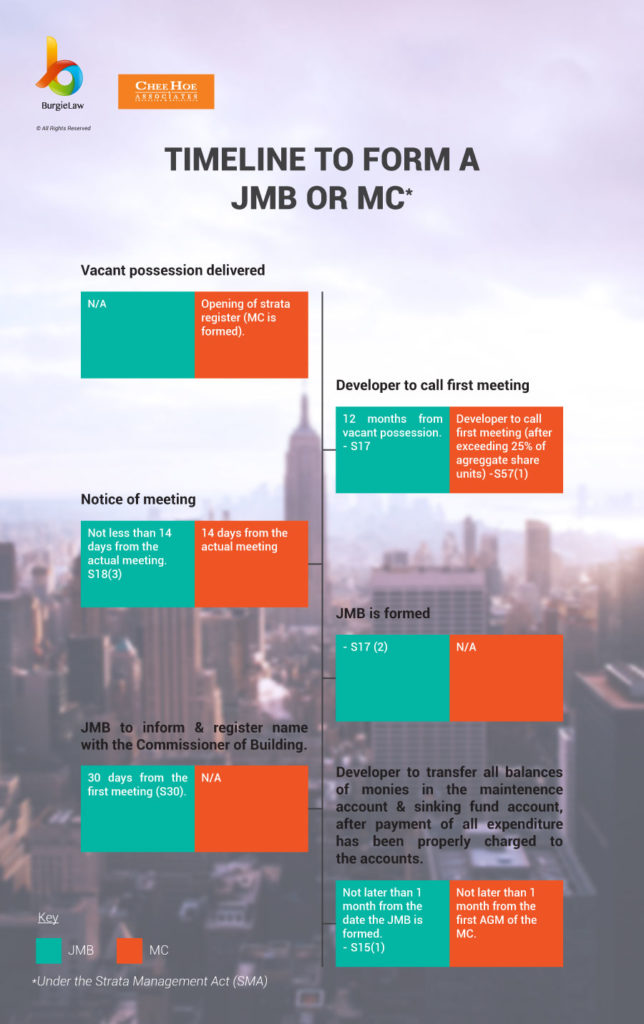
At the first meeting, it is imperative that you make sure the developer includes the issues below in the meeting’s agenda:
- To determine the number of members of the JMC;
- To consider the annual budget prepared by the developer;
- To determine the maintenance charges and contribution to the sinking fund;
- To determine the rate of interest payable for late payment of maintenance charges and sinking fund;
- To consider the audited accounts;
- To confirm the taking over by the JMB of insurances effected by the developer;
- To make additional by-laws; and
- To consider any other matter connected with the maintenance and management of other common property
The quorum (minimum number of members) that make the meeting valid at the first meeting must be one half of the purchasers who are entitled to vote. If within half an hour, a quorum is not present, the registered members entitled to vote who are present shall constitute a quorum.
Maintenance Account (MA)
In the course of anticipating the first meeting, the individual purchasers must also know that it is the duty of the developer to open and maintain a Maintenance Account. The account should be opened for each development area and be transferred to the JMB after JMB is formed.
Transferring of the funds from the MA is usually a tedious process and it is important that the JMB at this juncture note the following:
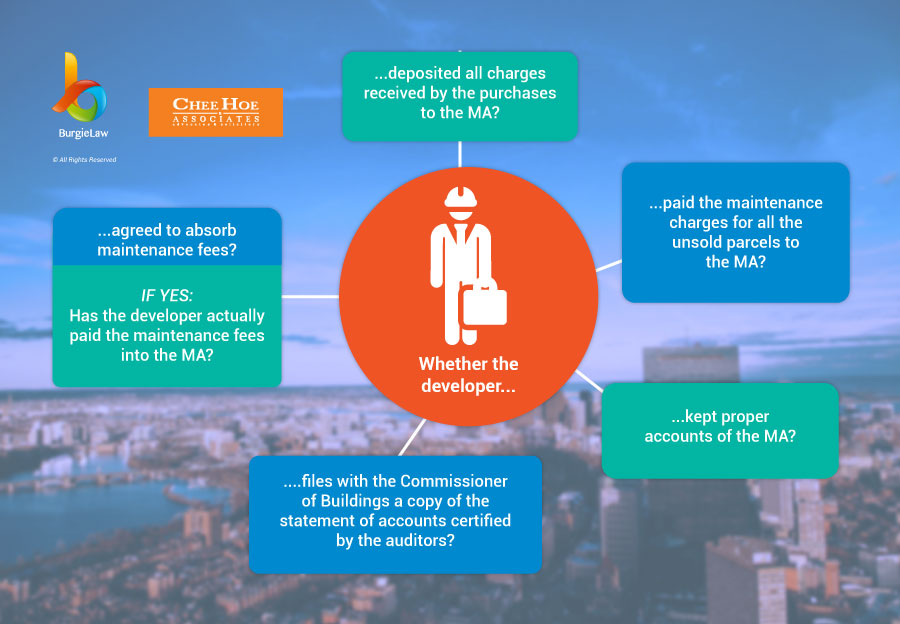
All monies collected by the developer in the maintenance account shall only be used for actual or expected general or regular expenditure of the following matters:
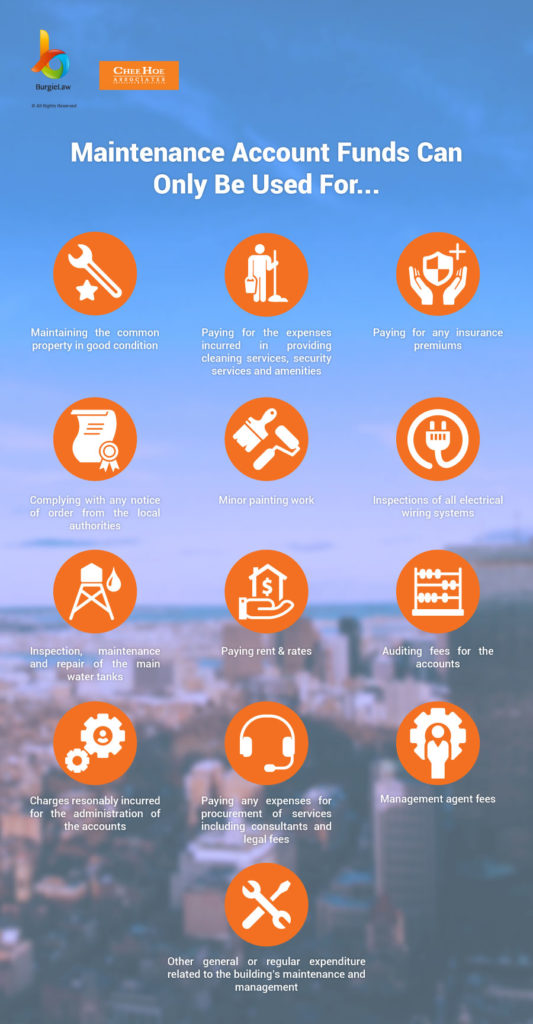
A developer who fails to comply with the above commits an offence and shall be liable to a fine of not less than RM250,000.00 or to imprisonment for a term of not exceeding 3 years or to both.
During the handover to the JMB, the Developer is also statutory bound to:
- Hand over the administration office set up by the developer;
- The audited accounts of the maintenance account and sinking fund;
- All the assets of the development area;
- All records relating to and necessary for the maintenance and management of the buildings;
- All invoices, receipts and payment vouchers in respect of the maintenance account and sinking fund account
Section 15(3) of the SMA also made it a duty for the developer to deliver to the JMB:
- All approved plans for buildings or lands intended for subdivision;
- Any document in the developer’s possession that indicates, as far as practicable, the actual location of any pipe, wire, cable, chute, duct or other facility for the passage or provision of systems or services;
- All contracts entered into by the developer in respect of the maintenance or management
- A copy of the schedule of parcels filed with COB;
- The names and address of such contractors, subcontractors and persons who supplied labour or materials to the development;
- All warranties, manuals, schematic drawings, operation instructions, service guides, manufacturer’s documentation and other similar information in respect of the construction, installation, operation, maintenance, repair and servicing of any common property
- The register of all parcel owners of the buildings;
- The original copy of all insurance policies
Any developer who fails to convene a first Annual General Meeting or to deliver the documents above commits an offence and shall, on conviction, be liable to a fine not RM250,000.00 or to imprisonment for a term not exceeding 3 years or to both.
If the developer fails to discharge its responsibility, a proprietor can lodge a complaint at the Strata Tribunal. There are a lot more issues which I have come across at the handover period which I may not be able to share them all at this juncture but JMBs are encouraged to seek legal advice for a complete handover.
This article is part of a series: Part 1 | Part 2 | Part 3 | Part 4 | Part 5 | Part 6 | Part 7 | Part 8
